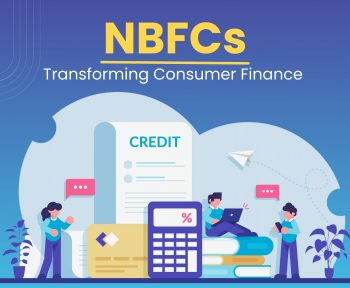The financial services consumer landscape is witnessing a dramatic shift as the Generation Z (Gen Z) population gains prominence. They are defined as those born between the mid-1990s and the early 2010s. This generation, equipped with remarkable tech-savvy prowess, is coming of age in a world that is more interconnected, digital, and data-driven than ever before. Fintech companies are in a race to meet the unique needs and preferences of this emerging demographic with tailored approaches and offerings.
Gen Z, the world’s fastest-growing demographic, wields remarkable spending power, estimated at a staggering $140 billion. This purchasing capacity has made them the center of attraction for service providers in the fintech arena. Traditional banking institutions, too, have recognized this potential and are tailoring new offerings to capture their attention. Meanwhile, neobanks have already begun making inroads into this burgeoning market. Yet, there’s a rapidly emerging wave of new entrants specializing in specific use cases designed to captivate Gen Z consumers.
To understand how to win over Gen Z, it’s imperative to first comprehend the defining characteristics that underpin their consumer behavior. Three key dimensions shape the behavior of this dynamic segment:
1. Tech savviness
Gen Z stands out as an extraordinarily tech-savvy population. Their innate comfort with technology surpasses that of previous generations. Their ‘experience mindset’ has paved the way for innovative offerings and platforms capable of seamlessly handling a multitude of tasks.
2. Financial freedom
Gen Z is experiencing financial independence at an earlier age than their predecessors. They are earning a large income through side gigs, driven in part by income generated from their online presence, particularly through social media and content creation. This financial freedom, paired with their prudent savings behavior cultivated during the aftermath of multiple financial crises and economic uncertainties, has given them substantial purchasing power. Their increased use of trading and finance apps during the pandemic indicates that they have a strong appetite for saving and investing. It is this intersection of financial freedom and growing spending power that renders Gen Z an irresistibly attractive customer segment for fintech providers.
While the appeal of this customer segment is evident, there is a noteworthy gap between their spending power and financial knowledge. This gap opens up a lucrative market that can be addressed through fintech applications designed to educate and empower young, newly independent spenders. Further, established strategies, such as hyper-personalized guidance, are proving to be effective. These applications furnish valuable advice on savings, complete with clear, actionable steps integrated seamlessly into the platform.
3. Social media influence
The emergence of social platforms such as Facebook, Instagram, TikTok, and others has made a significant impact on the consumption habits of Generation Z. One conspicuous trait of this generation is their shorter attention span. Unlike traditional marketing approaches, capturing the attention of young individuals requires concise, engaging videos rather than lengthy articles and blogs. This poses an additional challenge when it comes to marketing to attract Gen Z. The prevalence of social media has made it easier to reach this generation. Gen Z seeks an all-in-one solution. They are digital natives who turn to social media and online platforms for a myriad of purposes. Social media, owing to its network effect and influencer ecosystems, offers substantial potential to effectively reach the Gen Z segment in a highly targeted and engaging manner. As of 2023, a staggering 4.9 billion individuals are active on social media platforms worldwide, and this figure is anticipated to surge to around 5.85 billion by the year 2027. Needless to say, the market opportunity, given these numbers, is massive.
4. Financial realism
Gen Z’s financial realism stems from a unique perspective. As they grow up, they observe the struggles and challenges faced by their Millennial predecessors. This early exposure to economic turbulence has instilled a sense of financial caution and prudence. Unlike earlier generations, Gen Z is more inclined to prioritize financial security at an earlier stage in their lives. They are keenly aware of the importance of saving, budgeting, and building a stable financial foundation. This heightened financial awareness is reflected in their choices, which often lean toward financial products and services that offer security and stability, such as high-yield savings accounts, investment options with lower risk profiles, and robust insurance coverage.
5. Socially conscious
Gen Z’s emphasis on social and environmental issues is a defining characteristic that goes beyond financial considerations. This generation is acutely aware of the pressing global challenges, such as climate change, social inequality, and environmental sustainability. As a result, Gen Z places a strong emphasis on aligning their values with their financial decisions. When it comes to investing and banking, they seek opportunities that support causes they are passionate about. This is often referred to as impact investing, which involves directing funds towards companies and projects that prioritize social responsibility and environmental sustainability. Gen Z considers the moral and ethical ramifications of their investments in addition to profit when making financial decisions. Fintech companies looking to capture their attention should, therefore, offer options for impact investing, ESG (Environmental, Social, Governance) scoring, and other features that align with Gen Z’s values.
6. Entrepreneurial spirit:
A significant portion of Gen Z exudes an entrepreneurial spirit that sets them apart from their predecessors. They aspire to create their own paths and value financial independence as a means to achieve their goals. The rise of the gig economy, along with the possibilities presented by the digital age, has made it easier for Gen Z to explore entrepreneurship and self-employment. They are keen on pursuing side hustles, freelance work, and e-commerce ventures. This entrepreneurial drive is not only about financial gain but also about the desire to have control over their careers and financial destinies. The white-collar gig economy has been rapidly evolving, experiencing a remarkable 93% growth since January 2023, according to data as of July 2023. Fintech companies can tap into this spirit by offering tools and services that facilitate entrepreneurship, such as digital payment solutions, e-commerce platforms, and financial management apps tailored to small businesses. By understanding and supporting this entrepreneurial inclination, fintech can become a valuable ally for Gen Z as they forge their paths to financial success and independence.
Understanding these key characteristics provides the backdrop for why fintech is a natural fit for Gen Z and why fintech companies are keen to adapt to this generation.
The fintech appeal to Gen Z
Fintech companies have several unique advantages when it comes to catering to Gen Z’s financial needs and preferences.
1. A digital-first approach:
Fintech companies are inherently digital, making them a natural choice for Gen Z. They have designed their services to be mobile-centric, recognizing that Gen Z is more likely to access and manage their finances via smartphones and other digital devices. This digital-first approach encompasses:
Mobile apps: Fintech companies provide user-friendly and feature-rich mobile apps, offering users the convenience of managing their finances from their smartphones.
Digital payment solutions: Due to their speed and ease, Gen Z prefers mobile wallets and peer-to-peer (P2P) payments, which are provided by fintech companies.
Digital lending: Digital lending offers and facilitates loans through online platforms and technology-driven processes, often with quicker approvals and disbursements compared to traditional banks.
2. Financial education:
Fintech companies understand the importance of financial literacy, especially for Gen Z. They provide educational resources and tools that help users:
Understand basic financial concepts: Fintech apps often include articles, videos, and interactive content that explain key financial concepts, such as budgeting, saving, and investing.
Simulate financial scenarios: Many fintech platforms offer tools that allow users to simulate various financial scenarios, helping Gen Z make informed decisions.
Investment guidance: Some fintech apps offer guidance on investment strategies and portfolios to empower Gen Z to start building wealth early.
3. Personalization:
Personalization is a key element of fintech services, catering to Gen Z’s desire for tailored experiences. This includes:
AI-driven recommendations: Fintech platforms use artificial intelligence to analyze user data and provide tailored recommendations for financial products and investments.
Customized alerts: Users can set up personalized alerts for specific financial events, helping them stay on top of their financial goals.
Targeted content: Fintech companies use data analytics to provide users with content and offers relevant to their financial situation and goals.
4. Socially responsible investing:
Gen Z has a strong emphasis on social and environmental issues. Fintech companies are adapting by offering socially responsible investment options.
Impact investing: Fintech platforms offer investment opportunities in companies that prioritize social and environmental responsibility. Users can invest in businesses aligned with their values.
ESG Scores: Environmental, Social, and Governance (ESG) scores are incorporated into investment platforms to help Gen Z decide what investments to make and how much to risk.
Transparency: Fintech firms often provide transparent information about the companies and industries in which users are investing, helping Gen Z make ethical investment choices.
5. Instant gratification:
Fintech platforms provide real-time access to financial information, which aligns with Gen Z’s preference for instant gratification.
Real-time notifications: Users receive instant notifications about transactions, account balances, and investment portfolio changes, keeping them constantly updated.
Immediate fund transfers: Fintech services offer quick and convenient fund transfer options, such as instant money transfers between accounts.
Interactive dashboards: Fintech apps provide interactive and real-time financial dashboards, making it easy for Gen Z to monitor their financial health.
6. Low fees:
Fintech companies often have cost advantages compared to traditional financial institutions.
Competitive pricing: Fintech firms frequently offer lower fees for services such as investing, foreign exchange, and money transfers, making financial activities more cost-effective for Gen Z.
Fee transparency: Fintech platforms are known for their fee transparency, helping users understand the cost implications of their financial decisions.
No hidden costs: Gen Z appreciates the absence of hidden fees, which fosters trust and transparency between the user and the fintech provider.
Challenges and opportunities
Fintech companies, while naturally aligned with Gen Z, face a set of challenges alongside significant opportunities. Security concerns, as with all consumers, are paramount, demanding the highest standards of data protection and privacy. The fiercely competitive fintech landscape provides Gen Z with numerous options, necessitating differentiation through innovation and exceptional user experiences. Complex regulatory compliance requirements can act as a barrier to entry in certain regions. Building trust is foundational, as Gen Z consumers require confidence in their financial services provider’s reliability and commitment to their best interests.
To address these challenges and capitalize on opportunities presented by Gen Z, fintech companies should consider several strategic approaches. Embracing technology by continually investing in cutting-edge solutions allows them to meet and exceed Gen Z’s evolving expectations. Providing educational resources and guidance assists Gen Z in understanding and effectively navigating financial services. Leveraging data-driven insights enables personalized experiences and tailored financial solutions that align with Gen Z’s distinctive needs and values. Incorporating sustainability and social responsibility into financial products and services addresses Gen Z’s ethical concerns. Collaboration with Gen Z influencers, brands, and organizations fosters trust and credibility within the Gen Z community.
The future
Gen Z represents a generation that is redefining the way financial services are consumed. Their digital-first mindset, commitment to social and environmental causes, and desire for financial independence create new challenges and opportunities for the fintech industry. To remain relevant and successful, fintech companies must adapt to Gen Z’s unique expectations, values, and preferences.
As Gen Z comes of age and becomes a major consumer force, fintech companies must continue to evolve to meet their distinct demands. This adaptation will not only ensure the success of fintech businesses but also contribute to the financial empowerment and well-being of Gen Z, who will shape the future of the financial services industry. As fintech companies embrace these changes and cater to Gen Z, the financial landscape will continue to transform, creating new opportunities for all generations of consumers.
If you are looking to transform your debt collections strategy with the power of digital and data-powered insights, reach out to us to request an exploratory session at sales@credgenics.com or visit us at www.credgenics.com





